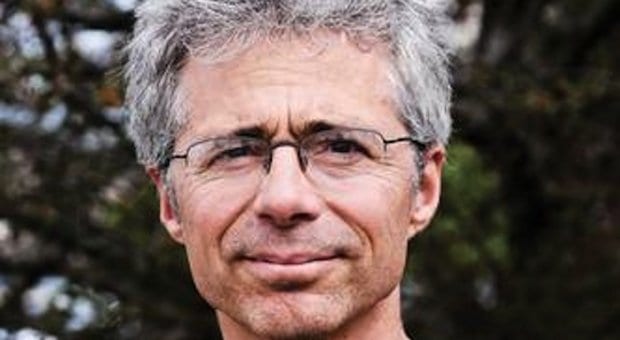We in the West have a lot more to do with the climate of oppression facing sexual minorities in Africa than we might realize. The influence of colonialism has permeated almost every aspect of African life, bringing with it attitudes about sex and gender. In most African countries, homosexuality is still illegal in whole or in part, and only a select few have any kind of anti-discrimination laws.
Given this bleak portrait, it can be difficult to believe there is reason for hope. But as Queen’s University professor Marc Epprecht discusses in his new book, Sexuality & Social Justice in Africa, hope is there. Just not in a form that we might immediately recognize.
“The issue of LGBT rights is kind of intertwined with the history of colonization,” explains Paul Mkandawire, professor of health and human rights at Carleton University. “Even though the movement is rising, we see more and more people openly advocating for LGBT rights, but they’re still on the margins of society and they don’t wield as much power.”
The spread of HIV/AIDS has further complicated matters, and Mkandawire says it is largely perceived as a white man’s disease. This, he says, has contributed to the perception that the West is also imposing the LGBT rights movement.
The overall influence of patriarchy and straight dominance in African countries means that most attempts to curb the spread of HIV/AIDS focus only on heterosexual sex. The church, Mkandawire says, has also had a huge influence, affecting attitudes toward LGBT people and discouraging condom use. In many communities, the only available health services are provided by church-run organizations. “If you are a gay person in that kind of area,” he says, “I don’t know how you would even start accessing care.”
Epprecht’s book looks at the pre-colonial history of homosexuality in Africa. “Homosexuality [was] well understood in African contexts and, largely speaking, [was] accepted as part of . . . normal human behaviour,” says Chris Brown, professor of political science and interim director of the Institute of African Studies at Carleton. “The deep irony is that if we talk about an influence . . . the idea of homophobia . . . originates in the West, and it’s brought to Africa by Christian missionaries.”
Perhaps most chillingly, the book discusses how conservative groups in the US that have been losing their battle against LGBT rights and marriage equality have become major funders and supporters of some of Africa’s most oppressive regimes. “You ask what’s going on in Uganda — you can’t explain what’s going on in Uganda unless you understand the role of some rightwing American evangelical groups,” Brown says.
“If you read the popular media, there is a lot of high-profile coverage, often very negative coverage, of the issue of sexuality and sexual rights in Africa. What you have in this book is a very levelheaded, very nuanced presentation of how things really are . . . It’s also in a very interesting way an optimistic book; it’s talking about the spaces in which Africans on the ground are addressing these issues, usually outside of the public layer,” Brown says.
For many activists, he explains, this has meant addressing issues of sexual health first and foremost and allowing the promotion of sexual justice to follow. “[Epprecht] does suggest, for instance, that organizations which in fact have totally soft-pedalled the sexual rights dimension and have focused . . . on the health dimension of the HIV/AIDS epidemic have, in fact, been able to be quite successful in advancing LGBT rights because it’s kind of implied or underneath,” he says.
Overall, there is still a long road ahead in the struggle for LGBT rights in Africa. But change is happening, however slowly, as human rights activists begin to make inroads.
“[The well-being of LGBT people] should not be dependent on the benevolence and goodwill of the state, of their community,” Mkandawire emphasizes. “They should be recognized as having inalienable rights by virtue of being human first and foremost. They’re human beings first and foremost.”
Ottawa book launches for Sexuality & Social Justice in Africa, by Marc Epprecht, and Sexual Diversity in Africa, edited by SN Nyeck and Marc Epprecht
Wed, Jan 29, 7pm
251 Bank St, second floor (25One Community)
Free
Presented by Octopus Books, in partnership with the Carleton University Institute for Women’s and Gender Studies, the Institute of Sexuality Studies, and the Institute of African Studies


 Why you can trust Xtra
Why you can trust Xtra


